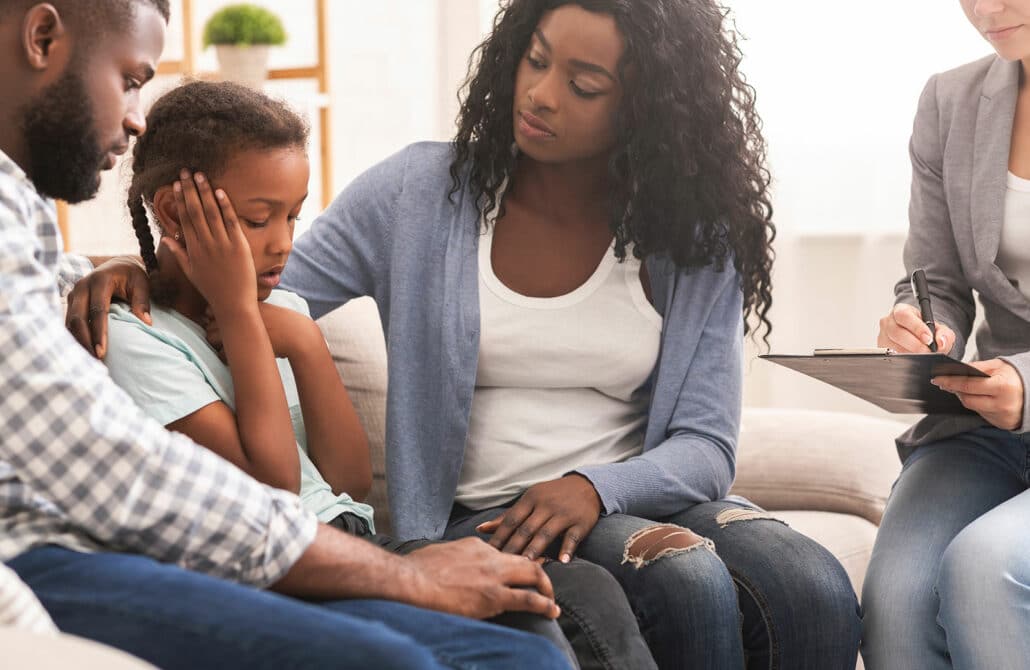Drug overdose deaths in the United States are on the rise according to the Centers for Disease Control and Prevention (CDC). More than 100,000 people died from drug overdoses in the United States during the CDC’s latest annual reporting period. Compared to the CDC’s previous reporting period, that is an astounding increase of almost 30 percent in only one year!
As startling as those numbers are, though, they pale in comparison to the more than 40 million people who suffer from a substance abuse disorder. Fortunately, the Nar-Anon Family Groups offer hope to families and friends of individuals who have a drug addiction problem.
Table of Contents
What Is Nar-Anon?
Nar-Anon is an organization founded in 1968 for the purpose of supporting families and friends of drug addicts. It operates in much the same way as Al-Anon, which provides support to families and friends of addicts and alcoholics. Nar-Anon is similar to Narcotics Anonymous and works to achieve the same basic goals.

However, it is a separate entity. Although Nar-Anon is not a religious program and avoids the practices of specific faiths, it does incorporate the spiritual way of life that a Higher Power can provide help to individuals and families who are seeking peace while simultaneously trying to solve many of the problems associated with the drug dependency of a family member or friend.
What Does a Nar-Anon Program Treat?
Rather than treating the drug addiction itself, Nar-Anon treats the effects of a drug dependency on the families and friends of the person who has the addiction. This is true whether the drugs being abused are illicit drugs like heroin, cocaine and methamphetamines or prescription drugs like painkillers.
Nar-Anon treats the psychological problems associated with drug abuse, such as shame, stress and anger. It also deals with the problems of money management, co-dependency and self-care. Additionally, Nar-Anon tackles issues related to the inability of an addicted spouse or other family members to hold a job or to live up to other family and community responsibilities.
Nar-Anon meetings also have a twelve step program, behavioral health counseling, in person meeting with a counselor or virtual meetings via Zoom for the loved ones of the addicted person. Nar-Anon programs does not offer a treatment program for person’s with substance abuse disorder or alcohol dependency.
You can reach out to treatment providers like Long Island Interventions for addiction treatment Because Nar-Anon is a support group for family and friends of an addict, not a rehab center or treatment facility.
Who Does Nar-Anon Help?
Nar-Anon also helps spouses, partners, parents, children and other family members of drug addicts to overcome this difficult moment in life. Consider Nar-Anon as a support group and helpline for friends and loved ones batting with addiction.
It can also benefit friends, neighbors and coworkers of individuals who have a drug dependency. Nar-Anon is basically designed to help anyone whose life has been negatively impacted by the drug abuse of another person regardless of whether the abuser is an adult or teen.
In addition to helping people deal with family members and friends who are addicted to illicit drugs, Nar-Anon also helps adult children who are dealing with the problem of elderly parents addicted to prescription drugs like pain killers. Without Nar-Anon’s help, family members may feel like they are in a hopeless situation and may not understand what they can do to help their loved one recover.
How Does Nar-Anon Work?
The Twelve Steps of Nar-Anon is designed to let participants walk through one step at a time and to repeat steps as much as needed. It is similar to and based on the 12-step program used by Alcoholics Anonymous (AA).
The first three steps are considered to be foundational and are to be practiced on a daily basis. Although Nar-Anon is not a religious program, it does incorporate some spiritual components. Here are some of the issues addressed by the 12-step program:
- Friends and family members are powerless over a loved one’s addiction.
- Addictions can make the lives of family members unmanageable.
- A Greater Power is needed to overcome the adversity that results from a friend’s or family member’s drug addiction.
- It is necessary for each person to examine their own life and to look for ways to overcome defects and shortcomings.
Who Is Nar-Anon Right For?
Nar-Anon is right for anyone who has been negatively impacted by the drug abuse of another person. The other person could be a spouse, partner, parent, child or friend. They could even be a coworker or neighbor. Nar-Anon publishes a set of questions designed to help a person determine if Nar-Anon is right for them.
The questions include topics such as whether you ever helped in covering up another person’s drug addiction or whether you lie awake at night worrying about them and the problems they cause. If you answer yes to four or more questions out of 20, the program should be beneficial to you. There is also a special program for teens known as Narateen meetings.
It is designed specifically for teenagers who are dealing with the effects of another person’s drug addiction, especially their primary caregivers. It is especially helpful to teenagers who have parents suffering from a drug abuse disorder.
What Is Group Therapy?
Group meetings provide therapy by showing people that they are not alone in dealing with problems caused by another person’s drug dependency. The common goal of the group is to share solutions and to focus on the needs of group members in addition to the needs of the person with the addiction.
Only one person speaks at a time when sharing experience. Anyone can express an opinion, but criticism and judgment of other members is not condoned. No one is forced to speak. Everyone is free to simply listen if that is the best role for them. Every group is autonomous, and the group members decide how the meetings should be conducted and what topics should be covered as long as everything is done in accordance with Nar-Anon traditions.

What Are the Benefits of Group Therapy?
By attending group meetings, Nar-Anon members meet with other individuals who are in the same boat as they are in. Members are free to exchange literature and information so that they can learn from each other.
Because many things are repeated at meetings, attendees begin to learn a specific language of their own that includes slogans, traditions and steps designed to help in their recovery. Some group members may benefit by serving as a leader, helping to organize meetings or acting as the group’s secretary or treasurer.
Where Can I Go for Meetings?
There are meetings available at various places throughout the Long Island community, including New York, Suffolk County and Nassau County. Contact us today so that we can provide you with a comprehensive list.
You can also search an online database for meetings in your area. There is sure to be a meeting place and time that is convenient for you. If not, you can set up your own group meeting with the help of the Nar-Anon staff by visiting www.nar-anon.org.
How Nar-Anon Helps Families
Nar-Anon provides the support that families need to deal with relatives who have a drug addiction problem. It does this through a 12-step program similar to the one that is used in Alcoholics Anonymous (AA) and Narcotics Anonymous (NA). By working through each step of the program, family members can learn how to deal with problems caused by the drug addiction of a loved one.
This includes problems of neglect, abandonment, abuse, financial issues and family relationships. Families also receive support by attending group meetings where they can meet with members of other families faced with the same challenges that they are dealing with. This provides for an open exchange of dialogue, information and helpful tips on how to address specific issues.
Get the Help You Need Today
Do you have a family member, partner or friend who has an addiction problem? Is their addiction also causing problems for you and other family members? Or perhaps you are the one who has an addiction problem and is looking for help. If so, contact Long Island Interventions today. You do not have to struggle through this alone.
Help is only a phone call away. We have many resources available and would be happy to provide the information you need and help you find the best resources and programs for you and your family. We serve the entire Long Island community, including New York, Suffolk County, and Nassau County.

